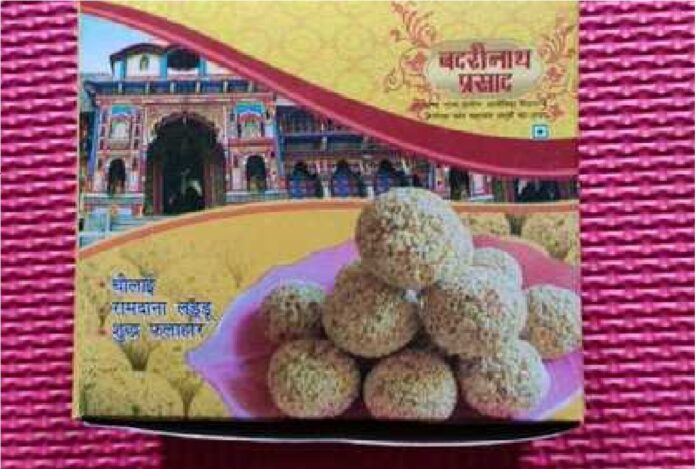NTI (Dehradun) : After the Tirupati Laddu controversy, various steps regarding prasad are being taken in temples nationwide. In this context, the Badrinath-Kedarnath Temple Committee (BKTC), which manages two of Uttarakhand’s major Char Dhams, Kedarnath and Badrinath, has issued a new SOP regarding Prasad. A food safety audit of the Prasad from Badrinath and Kedarnath temples will be conducted once a year.
Every year, millions of devotees visit the temples in Uttarakhand. In light of the controversy surrounding the prasad at Tirupati Balaji Temple, the Badrinath-Kedarnath Temple Committee has made a major decision. A new guideline has been issued regarding the quality of the prasad offered and distributed to devotees in all the temples under the committee’s administration.
The guideline mandates an annual food safety audit of the prasad offered at the temples. Additionally, periodic checks will be conducted to ensure the quality of the ingredients used in the prasad. The place where prasad is prepared will be monitored through cameras.
According to Ajendra Ajay, the chairman of the temple committee, the purity and maintenance of prasad at Badrinath and Kedarnath are already given utmost importance. A dedicated team is in place for this purpose. However, considering the current controversies, new guidelines have been issued. He stated that they aim to ensure proper oversight of the rice, oil, saffron, and other items used in offerings in the future. Efforts are being made by the temple committee to ensure the quality of prasad. This system will be implemented in all the temples under the committee’s jurisdiction.
Strict provisions have been made regarding the size of the kitchen, ventilation, and drinking water arrangements for preparing prasad and bhog. The SOP includes instructions for washing hands, providing cold and hot water for handwashing, and making provisions for dryers and towels.
For purchasing raw materials for prasad, only reliable and known traders will be approached, and the items must be thoroughly inspected during purchase. The raw materials purchased for prasad should be free from stones, hair, glass, insects, etc. Only packaged oils, spices, ghee, saffron, etc., will be used in the prasad.
At the time of receiving food materials, the expiry date, name of the manufacturer, address, AGMARK, and food license number should be verified by checking the food label before storing the materials. Reused oil will not be used again in prasad preparation. Prasad made with oil and ghee will only be reheated up to three times.
The SOP also defines handwashing protocols, making it mandatory to wash hands before preparing prasad, after using the toilet, and after cleaning prasad containers. Employees involved in prasad preparation must be healthy and free of any illnesses. Dry fruits or dry prasad should be stored on wooden surfaces or in plastic packets.
In addition, older prasad should be used first. A designated person will be responsible for ensuring compliance with the entire SOP regarding prasad storage and prior donations or offerings. Furthermore, food safety and food safety audits will be conducted at least once a year as part of this process.


